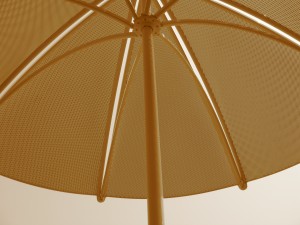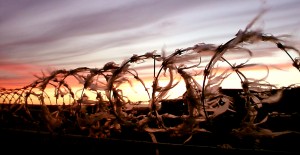It’s not an issue to discuss if or when a cyberpirate will – partially hopefully – take control of your computer.
The main issue is : ‘how long is he already in’ and ‘what damage has he already done ?’
Are you afraid ? You shouldn’t. My goal is to come back once again with awareness. It reminds me this ‘old’ post.
At home, this can be problematic. I come to it in a moment. But at work, in an SME, it can represent a lot of money.
The big problem comes from the fact that, even with the standard tools and a Chief Information Security Officer, it requires numerous months to discover you’ve been visited.
Because the veil is already there, latent most of the time. This is why the antivirus and the border protection – which is not even necessary but even indispensable – is frequently largely insufficient.
What’s the problem?
The ‘virus’ are a knows and permanent threat. Their number and complexity grow day after day. And the protecting software must continually be updated.
Virus
The ‘virus’ is intrinsically a code that propagates by replication from software to software, from file to file, and from computer to computer across the network.
Cookies
(Nearly) all Internet sites use the ‘cookies’ to identify you and your habits. They put your privacy at stake. They don’t replicate but accumulate in your computer.
Trojan
Trojans are these small software you catch like a clod, by contact. They arrive while downloading content from a website – even by just connecting, as for the cookies – or in the emails or their attachments.
They are the most dangerous s they are conceived to gather – and send over – your personal information, your habits, and your passwords. They undermine your computer and let them run on their behalf, without you even know it. It’s through them ‘you’ attack other computers.
Pirates combine hundreds of computers in ‘botnets’ for a massive attack, or one that requires huge resources.
Other threats
Besides malevolent activities, another threat exists on your computer: the operating system (Windows, Mac OS.X, Androîd, etc.) and the Internet browser (Internet Explorer, Safari, Google Chrome, Firefox, etc.) and mainly the tracks they are recording.
Each action, each visited site are recorded, along with the software installation – even when uninstalled they don’t totally disappear. This accumulates to a point when, after a while, the available work memory gets restricted. The computer runs slowly and slowly.
To ‘ease your life’, these tracks are kept when you switch your computer off. They are screened at start up. Did you notice how, by power up, it progressively takes more time?
What can we do?
The solution is classical and as old as mankind: “clean up the house!”. You only have to regularly and thoroughly clean this up.
You can’t however do it as easily as the tools aren’t included. You have to download software which work as real “Cleaning Lady”.
The antivirus (AV)
You’ll find here (http://en.wikipedia.org/wiki/Comparison_of_antivirus_software ) a list indicating their capabilities, the way you can acquire them and where they are applicable.
All aren’t as effective, however. EICAR, an official organization (http://en.wikipedia.org/wiki/EICAR ), regularly rank the AV softwares.
Make your choice within the ten first in the list and go for the ‘free for private use’ version.
As the AV software can’t easily detect Trojans, they aren’t cleaned up!
If you work with an Apple PC (OS.X), you’re less exposed to viruses – that easily glue on Windows and Androïd. But you always stay with the viruses that attack packages such as Office, PDF Reader, ITunes, YouTube… and the Trojans.
I remind you that Antivirus software frequently associated is with Internet protection packages.
Keep your AV on and up-to-date permanently on your Windows and Androïd PC. On a Mac, run the AV once a week, it should be sufficient… for the moment.
Cleaners
These software (CCleaner is free and can be used both on Windows and Mac) should be run regularly – why not onc a week? –, and erases cookies and tracks (among others). It also allows you to delete files as effectively a shredder could do.
So, if I start with making you afraid, I also come with solutions.
Ask me all questions you still have
See you soon, safer with your information
Jean-Luc
© Dawn Allynn | Dreamstime Stock Photos
© Tatiana Sayig | Dreamstime Stock Photos
Google+

